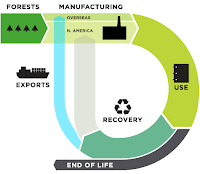
Today we have a book about one of the most hottest trends that is buzzing around!
Our book is:
The Complete Idiot's Guide to Beekeeping
Author: Dean Stiglitz and Laurie Herboldsheimer
Publisher: Alpha
Published on: May 2010
The Complete Idiot's Guide to Beekeeping has all the information a beginA-ning beekeeper needs to know to start a hive and keep it buzzing. Expert beekeepers Dean Stiglitz and Laurie Herboldsheimer, owners of Golden Rule Honey, take readers step by step through the entire process-from information on the inhabitants of a hive and how it works to collecting bees, keeping them healthy, raising a queen, harvesting honey and wax, and storA-ing hives for the off- season.
What we think about it?
The popularity of beekeeping keeps growing. The Telegraph reported last month, for example, that "A new trend among the middle classes for keeping bees has doubled the number of hives over the last two years". According to the British British Beekeepers Association (BBKA), the increase had partly been driven by concern for the environment and the recent fashion for grow-your-own food.
And it's on the other side of the ocean as well. Epoch Times reported on May about "Landmarks across North America becoming hives of activity", mentioning that "beekeeping became legal in New York City in March, much to the delight of the hundreds of residents who had been keeping bees in violation of the city’s health code. San Francisco has an abundance of apiaries, mostly on condo and apartment rooftops. The South Lawn of the White House boasts an apiary, as do Chicago’s City Hall, the Paris Opera House, and London’s upscale food emporium Fortnum & Mason."
And the benefits of making your urban surroundings buzzing? Adam Aston who documents his experiences and observations as a novice beekeeper in the urban jungle at Bees NYC explains: "The benefits of urban beekeeping are substantial. Despite the conventional view of the city as a slough of pollution, urban honey is likely to have significantly less chemical residue than commercial honey made beyond the boroughs...Local honey will benefit the health of the planet as well: minor transportation costs, no-fuss manufacturing (courtesy of the bees), minimal processing, simple recyclable packaging and centralized retailing provide a model of effective, low-carbon production and distribution."
So as you can see 'The Complete Idiot's Guide to Beekeeping' was released in a perfect timing. The buzz is already here and many people wants to learn more about beekeeping, or at least better understand if they can or should get into it. Well, this book is definitely a good place to get some replies.
As always with this series, this book covers all the basics - information on bees, essential gear, where to get your bees, what they eat, how to inspect your hive and even what they call 'Bee Sex 101' (Did you know that when a drone mates with a queen his sexual organ explodes and he dies??). And as with many other books in the series, this book provides you enough information you need to establish knowledge about the subject, so if you're becoming serious about it, you can go to stage two - going to experts and asking questions.
But let's go back for a second to stage 1 - the basics. Keep in mind that beekeeping is more complicated than learning how to grow tomatoes in your back yard, but at the same time, it's not rocket science. Still, there's a lot to learn - as the authors write in the introduction to the book: "No matter the accumulated knowledge, no matter the sophistication of the tools, every answers we get yields countless questions. The closer we look, the deeper we go, and it never seems to end. This is the nature of the honeybee."
The book definitely makes an attempt to address all the challenges involved with beekeeping, and full with useful information, easy to navigate and full with interesting facts that makes it more than just a practical guide. It's not National Geographic on bees, but still I found myself learning a lot. Here's for example one practical advice I hope I won't have to use: "For normal pain an itching from bee stings, try applying a poultice of plantain leaf... A common "home remedy" is a paste of baking soda and water."
Bottom Line: If you're considering to join the buzz, but don't really know too much about bees, this is the book for you.Disclosure: We received a copy of this book from the publisher.
GIVEAWAY ALERT!!
Yours,
Raz @ Eco-Libris














